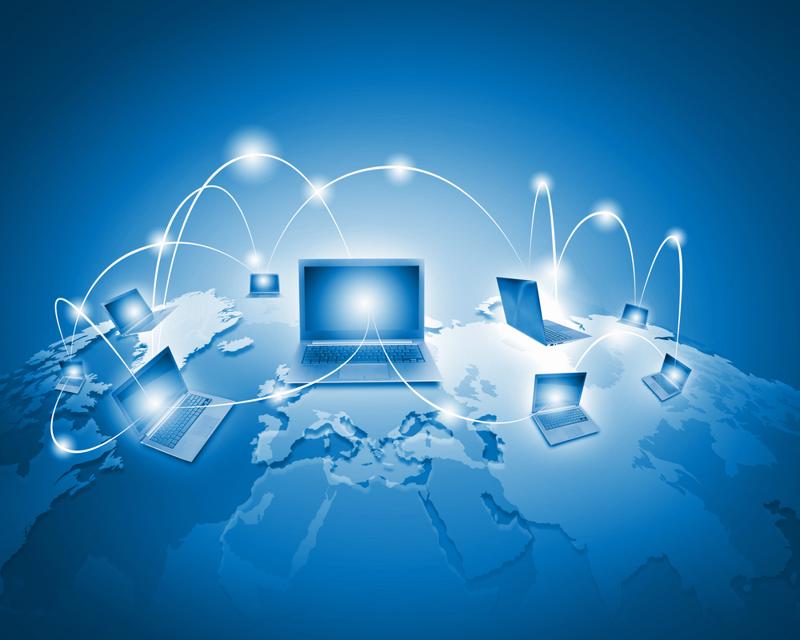
IoT and blockchain integration pick up steam in the U.S.
By Max BurkhalterJanuary 13, 2020
The adoption of internet of things technologies continues to skyrocket in the U.S. thanks to new innovations in cloud computing, big-data networking and artificial intelligence. In fact, Microsoft's recent IoT Signals report predicts that 94% of businesses will use some form of IoT by the end of 2021, with the manufacturing, retail/wholesale, transportation, government and health care industries representing key integration hubs. As businesses seek to take advantage of the IoT's near-endless capabilities, IT developers and data architects have taken a keen interest in blockchain technologies and how they can further enhance the IoT to support complex business processes.
An overview of blockchain technology
Blockchain technology is based on a distributed ledger framework, which is able to securely record and transmit information over a peer-to-peer network, according to the software company SAP. Originally, the blockchain was created to facilitate Bitcoin trading, but IT experts have found a range of uses for the technology outside of cryptocurrency. Since blockchains are decentralized records of transactions, they are often reliable and difficult to hack. Generally speaking, blockchain ledgers can be used to exchange all sorts of valuable assets, from land titles and loans to time-tracking manifests and more.
One major benefit of distributed ledgers is that they can be synchronized across multiple devices and data stores. This ensures each party receives an identical copy of transaction records whenever changes are made, and users can either accept or reject updates in real time. Additionally, most blockchains are outfitted with consensus algorithms that help monitor and control data records, reducing the risks posed by human error and fraud.
When data is approved, the information is entered as a collection of "blocks" and stored chronologically in a "chain" of transactions that cannot be tampered with or altered. This allows companies to create smart contracts and other digital documentation, which can automatically trigger actions and payments after certain conditions are met. According to SAP, blockchain technology offers businesses the following benefits:
- Fewer intermediaries: As true peer-to-peer networks, blockchains can reduce a business's reliance on many third-party intermediaries, including banks, brokers and more
- Faster processing: When multiple parties are involved in a single transaction, blockchain networks can accelerate process execution by removing time-based limitations, such as office hours and schedule conflicts
- Greater transparency: Since all parties can view information stored in a blockchain at any time, the technology can be used to build trust and credibility with customers, business partners and financial institutions
- Stronger security: Blockchains are both distributed and encrypted, making it difficult for malicious actors to hack the network or alter the stored information
Another advantage of distributed ledgers is that they can help businesses create more efficient and profitable processes. For example, a company could track transactions in real time across its entire supply chain, prove the origin and authenticity of its materials and streamline the flow of goods from distribution centers to retail locations across the country. But how do blockchains and IoT technologies overlap?

Digital transformation: The fusion of IoT and blockchain tech
According to a 2019 survey from Gartner, more than 75% of IoT technology adopters have already integrated blockchain capabilities into their workflows or are planning to do so by the end of 2020. In terms of specifics, nearly two-thirds of survey respondents felt that "increased security and trust" was a major factor in their adoption efforts, while 50% cited greater business efficiency and lower operating costs. However, the relative immaturity of IoT and blockchain technologies may force companies to upgrade their infrastructure and IT solutions at least once over the next few years. Among the core technical challenges, Gartner cited scalability, security and reliability as key concerns for businesses moving forward.
The survey also found that the highest rates of blockchain adoption are occurring in the pharmaceutical, energy, natural resources, utilities and transportation industries. Most companies in these fields operate under business models that emphasize the movement of goods, making real-time monitoring of B2B and B2C transactions essential. Blockchain and IoT help bridge the gap between the physical and digital world by making it possible to collect, store and analyze a massive amount of proprietary data, which can be used to improve internal workflows and eliminate process inefficiencies.
Despite the soaring optimism surrounding IoT and blockchain adoption, some companies are hesitant to integrate new technologies into their existing IT infrastructures. Consumers and government officials have become more outspoken about data security and privacy, which is already having a major impact on the data-sharing economy. The fear is that by implementing new technology that is still being optimized for business practices, companies are taking on unnecessary financial risk without any certainty of a long-term payoff. That said, blockchain technology is inherently more secure than other data-sharing systems, so it's likely that many organizations will ramp up their investments over the next few years.
Perle offers powerful connectivity tools that can help organizations scale up their IT infrastructure to make room for blockchain and IoT applications, including our reliable fiber media converters and device servers. Read some of our customer stories to find out more.



